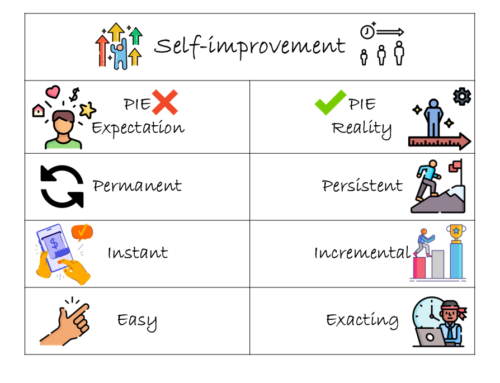Suppose we are working on an important project, and we have a clear vision of how that project will be executed most efficiently and effectively. But we have a colleague who opposes our idea. Initially, we may try to persuade them to see how their objections are unwarranted and how their concerns can be addressed by our plan. But if they don’t listen to us, are we obligated to give up our plan just because they don’t approve it? Certainly not, especially if that colleague is our subordinate but is acting like our superior. Even if we can’t change their way of thinking, we can persist in our plan without waiting for or working for their approval.
We need to adopt a similar dynamic in our inner world when dealing with our mind. Suppose we are convinced that a particular course of action is good for us — it will enable us to flourish both internally in terms of the fulfillment we get and externally in terms of the achievement we get to. Though we are convinced, we find that our mind is the opposite of convinced. Rather, it is convinced of the opposite, meaning it is not just indecisive about whether our plan is good, but it is inflexible in claiming that our plan is bad. In such situations, we can and should use our intelligence to reason with our mind and persuade it to get on board with us. If despite our best efforts, it stays stubborn and uncooperative, we need to push on without its consent.
To push on in this way, we need to change our relationship with our mind. We don’t have to let it take the position of our boss, even if it subtly assumes that position on its own. In our inner world’s hierarchy, the mind is subordinate to the soul, not superior to it (Bhagavad-gita 03.42). That is, the mind is meant to be the implementer of our desires; we are not meant to be the implementer of its desires.
When we try to put the mind in its place, it will shriek and scream; and neglecting its objections may feel like poison. Nonetheless, if we persist in doing the thing that is important for us, we will eventually come to a state that feels like nectar (18.37): the nectar being inner fulfillment, outer achievement or both.
Summary:
Even if we can’t change our mind, we can still change our relationship with our mind — even if it acts like our boss, we don’t have to let it boss us.
Think it over.
- What does the Gita tell us about our inner hierarchy?
- What can we do when our mind doesn’t cooperate with our plans?
- Do you have any experience of the nectar that results after enduring the poison of neglecting the mind?
***
18.37: That which in the beginning may be just like poison but at the end is just like nectar and which awakens one to self-realization is said to be happiness in the mode of goodness.
Audio explanation of the article is here: https://gitadaily.substack.com/p/when-our-mind-doesnt-cooperate-what

To know more about this verse, please click on the image


Leave A Comment